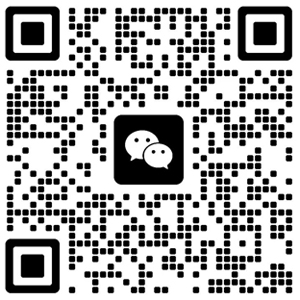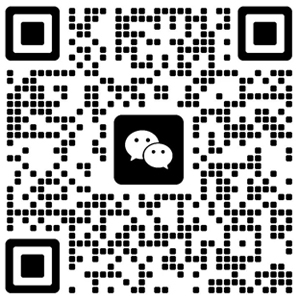
global study专业 留学_global study什么专业
- 留学生活
- 2024-04-04 08:36:40
好久不见了,今天我想和大家探讨一下关于“global study专业 留学”的话题。如果你对这个领域还不太了解,那么这篇文章就是为你准备的,让我们一看看吧。
文章目录列表:
1.美国留学电子电气工程专业个人陈述范文三篇2.美国留学工业工程专业个人陈述范文2篇
3.2018澳洲留学护士专业详细介绍
4.英国留学时尚管理方面的专业在英国有哪些呢?
5.澳大利亚留学的六个新兴专业有哪些

美国留学电子电气工程专业个人陈述范文三篇
去美国学习电子电气工程专业的学生不少,那么美国留学电子电气工程专业的个人陈述范文是如何呢?这个很多留学生比较感兴趣的话题。和一起来看看吧!下面是我整理的相关资讯,欢迎阅读。
美国留学电子电气工程专业个人陈述范文三篇
范文一
The personal data enclosed in this application file will demonstrate my profile as a child prodigy who entered into Jilin University at 16 and joined the country's topmost scientific research institution as a graduate student at 20. Now with an engineering experience of 4 years at the age of 24, I would like to scale still higher intellectual heights by pursuing advanced studies, an education process that I hope will gain me the competitive edge for personal growth and push me to the forefront of scientific progress.
Immersed in the academic atmosphere of an intellectual family, I was encouraged in my early childhood by my parents to read books in a wide range of disciplines. With this privileged background, I attended primary school at 6, at least one year earlier than the normal admission age of 7 or older. I felt so lucky-God blessed me with so many natural gifts. At an early age I showed a natural talent in mathematics and a strong memory, the attributes that enabled me to excel my classmates, especially in such challenging subjects as mathematics, physics and chemistry. I took part in a variety of provincial and national contests, demonstrating my excellent academic skills and wining many prizes.
Blessed with my academic potence, I was able to finish my primary and secondary education in 10 years, two years ahead of the usual twelve years. At 16, I entered a privileged class specially designed for the gifted students at Jilin University, a cradle of scientific and technological talents in China. The class selects only 90 students out of more than 1000 child prodigies across China each year. (Jilin University is a prestigious university of general education with 20 departments and a regular annual enrollment of 1,500 students) I studied at Electrical Engineering (E. E) Department, a highly selective department with a gathering of smart students who are hard to compete with.
Four years of undergraduate studies had me well trained in a wide range of disciplines, and my outstanding academic performance encouraged me to pursue an advanced degree. With a concentration on mathematics, communication and computer, I studied a variety of courses in my undergraduate years, among which were Higher Mathematics, Probability Statistics and Stochastic Process, Theories of Signal and Information, High Frequency Circuits and Principles of Modern Communications Systems, Computer Principle and other courses in the Electronic Technology field. I also studied Western culture, History and Economics in order to build up a good base for my education. With a wish to build a solid foundation for my future research and study, I was fully devoted to my academic training at college. My hard work proved to be successful. My overall GPA of 3.57/4.0 ranked in the top one percent of my class. Upon graduation in 1994, I won easy acceptance into Beijing University of Posts and Telecommunications as a graduate student at 20, an age when most Chinese students would be just starting their university education. At this university, I narrowed my academic interest down to the area of mobile communications and digital communications.
My MA education proved to be another period of fruitful and successful academic pursuits. Among the courses I selected were Probability Theory, ISDN & ATM, SPC, Digital Signal Processing, Personal Communications, C++ language. These disciplinary training prepared me to delve deeper in the study of electrical engineering and communications. To keep me informed of the latest developments in my field and to brush up my English language skills, I also read the latest professional journals and periodicals of the telecommunications on a regular basis. Burning the course of my MA program, my outstanding academic records won me various scholarships in seven consecutive years, among which, to name a few, were Excellent Students, Excellent Person, Excellent fellowship.
To garnish this writing with other personal activities other than academic achievements, I need to mention my perfect performance in a dancing contest at Jilin University, which won me the first prize.
Anyway, looking back at my campus life, I feel confident to say that I have fulfilled the education goal to my satisfaction.
Teaching ExperienceI worked as a teaching assistant at the Electronics Circuit Group in Personal Communications in my third semester at Beijing University of Posts and Telecommunications. I taught product applications and the telecommunications development in China. I trained the students by theoretical approach and also taught them how to solve real problems by practical means. I found the teaching position so much enjoyable. The daily academic exchanges between the students and myself were beneficial to both parties. I believe that my students enjoyed my teaching too because my classes were well attended.
Starting from April 1998, I worked as a part-time teacher at HP corporation. Later I was also employed by Software Center Motorola, China. I taught Motorola customers the principle of CDMA (Code Division Multiple Access) and the usage of the HP instruments for testing CDMA Base station and CDMA Handset. Motorola customers were all satisfied with my teaching. I not only grasped advanced knowledge but also, more importantly, learned how to be a good teacher.
Research ExperienceIn the second year of my graduate studies, I began to work as research assistant of Professor Dacheng Yang, a renowned expert in digital and mobile communication Research and Design Center of Ministry of Posts and Telecommunications. After learning the background, application, principle, and advantage of CDMA, I selected the signaling design of the CDMA Base Station Interface as my research topic. I evaluated and studied the protocols IS-95, IS-634 and the ULTRA interface protocols of Lucent. Applying software engineering method and Oriented-Object approach, I designed the internal interface of Base Station System between BSC and BTS-Abis interface, which is one of the most important parts of such a large and sophisticated project. Then referring to protocols LAPD/LAPF, integrating the latest knowledge and using one step. By working on this project, I learned more about CDMA, GSM and other mobile communications systems. Later I felt so proud to hear what I had done was downloaded to the board and the design ran flawlessly.
Working ExperienceAfter I obtained my MA degree in engineering in 1997, I was employed by a telecommunication branch company of Posts & Telecommunications Industry Company. I participated in the JSU18 switching System Project, which is planned to produce the sixth largest switching system in China's own switching systems. I was in charge of the No.7 signaling section and developed the trunk communication system. Referring to protocol Q. 764, etc, I designed the TUP (Telephone User Part) & ISUP (ISDN User Part) - the most important part of a switching system-with C++ Language. By now, I have finished the software flow of CPC (call process) of these two parts. Through programming, downloading the procedure into the real switching system, debugging and testing, I came to deeply understand the call process of the large switching system and the relationship between all the modules of a large switching system. The procedure that I completed is so good that we can call successfully through it.
In working on these two projects, I cultivated diligent work habits, independent research ability and team spirit. I feel I have the potential for further further academic growth and am ready to take up the challenge of advanced studies in my chosen field.
From August 1998, I joined Software center Motorola, China and got involved in the CDMA project. We must communicate with international customers on a frequent basis in English environment. So I not only learned about the excellent software development process and various branches of advanced knowledge, but also improved my English ability. Here, we often exchange our findings at presentations given by others and myself in English. I get a lot of technical and non - technical training, in such subjects as Software Product Process, CDMA ( Code Division Multiple Access), GSM, GPRS ( General Packet Radio Service - the third generation system of GSM), TTCN ( Tree and Tabular Combined Notation - a test language), ITEX ( Interactive TTCN Editor and executor - a test tool for the TTCN language), and even English language.
Purpose of StudyI learn greedily, but the more I am trained, the more deeply I realize what I learned earlier is not enough. I have not got a chance to lead a major project, although I have been moving on a smooth career path and always finished my part of every project immaculately. As a female engineer, I must learn more to compete with most male engineers to lead a major project. And in spite of all my achievements, I feel that I have not brought my intellectual capabilities into full play. So I desire to enter your esteemed university to pursue advanced studies so that I can lay a solid foundation for my future research work. In the meantime, I will be able to improve my English, and I hope that someday I can speak English as well as Chinese.
I believe I have acquired the necessary theoretical framework and practical experience for advanced studies. Equipped with the ability to teach myself and conduct independent research, I will be able to attain competence quickly in areas that I may at first know very little about. I never work just to finish an assignment, but instead I always try conscientiously to learn as much as possible and sharpen my expertise through the work I do. Keeping this work style, I have become highly skilled in such fields as switching system's trunking system (communications and software), Code Division Multiple Access system (mobile communications and software), SDT & TTCN (CASE and test tools), and pSOS+ system (real-time operation system). These achievements would be a great help in my pursuit of advanced education, especially when I can work under the seasoned guidance of your strong faculty. My previous experience will qualify me for the TA and RA positions of your university as well.
I would like to apply to do graduate studies in the United States where the research and education in global telecommunications are leading the world. I have long admired your esteemed university known for its demanding work ethics and nurturing academic atmosphere. I am confident that I can receive a high quality education on your PhD program. If I am accepted, I am also confident that I can make quick progress in the E. E field, especially in the areas of wireless communication, communication, digital signal processing, the disciplines that share many common characteristics and important principles. Given the broad applications of these technologies, I believe the progress we make in these areas will help shape the future of the mankind. I would like to be at the forefront of such progress. As I am well trained and broadly experienced in EE and computer science, you may find me more than qualified for advanced studies in areas other than those I have mentioned. If so, I would be grateful to your appreciation and would like to hear any advice that you may have for me. Upon completion of the program, I will return to my homeland and strive to make scientific contributions that both your university and I can be proud of.
范文二
Acclaimed as a prodigy, I entered into one of China’s Ivy League universities at 14 and joined the country’s topmost scientific research institution as a graduate student at 19. Now an experienced engineer at 26, I would like to scale still higher intellectual heights by undertaking advanced studies that I hope would put me firmly on the cutting edge of scientific development.
I have demonstrated a keen mind since my early childhood. For years, I consistently outperformed all of my classmates in such challenging subjects as mathematics, physics and chemistry. I was thus chosen to represent either my school or my city in a variety of provincial and national contests of academic skills, in which I won numerous prizes. This impressive academic record put me on academic acceleration several times. That not only enabled me to finish my primary and secondary education in eight instead of the usual twelve years but also sent me at 14 to a privileged class for the gifted at the Chinese University of Science and Technology, a major cradle of the country’s scientific and technological talents.
After two years of basic training in the gifted class, I chose electrical engineering as my major and computer software programming as my minor, convinced that expertise in these fields would stand me in good stead in an era of China’s rapid economic expansion and technological modernization. As you can see from the transcripts of my undergraduate grades, I excelled in both of these areas.
Upon graduation in 1991, I won easy acceptance into the Institute of Electronics under the Chinese Academy of Sciences and became a graduate student at 19, when most Chinese students would be just starting their university education. At this institute, I narrowed my academic interest down and focused it on the area of human and artificial intelligence, where the courses I took were deliberately concentrated. It seemed to me that scientific breakthroughs would next come in this area, which made it both challenging and promising. I learned a whole lot about this area in the course if doing my thesis titled “The Radio Shunting System in Railroad”, for which some experiments were conducted on the basis of artificial intelligence.
My solid education paid off in my ability to take on a variety of responsibilities in China’s burgeoning software industry. After I obtained my Master’s Degree in Engineering in 1994, I first took up a job with a telecommunication company, where I managed a trunk communication system that resembled the cellular wireless system. A year later, I joined a software company to develop CMIS program for China’s Post and Telecommunications Ministry. It was a large project, and I made crucial contribution to it by independently developing and finalizing one subsystem, which proved to be a significant success and won me profuse appreciation from users. After the completion of that project, I have been working for the Japan Brother Ltd. in the area of software development.
The relative smooth path of my career notwithstanding, I have not had a chance to lead a major project, although I have always finished my part of every project immaculately. In spite of all my achievements, I feel that I have not taken the full advantages of my intellectual capabilities. I now wish to pursue still more advanced studies and thereby obtain an advanced degree so that I can open more doors and shoulder greater responsibilities.
I believe I have acquired the necessary theoretical framework and sufficient practical experience for further studies. My ability to teach myself and conduct independent research allows me to attain competence quickly in areas that I may at first know very little about. I never work just to finish an assignment, but instead I always try conscientiously to improve my knowledge and expertise through the work I do. In this fashion, I have become seasoned in such fields as trunking system (telecommunications) and CMIS system (software). This quality should help me as I seek to further upgrade my education, particularly if I have ready access to the seasoned guidance of a strong faculty and the convenience of state-of-the-art research facilities.
The University of Idaho is well known for its excellence in the E. E field, complete with an accomplished faculty and modern research resources. These should set a good stage for me to exercise my keen mental power and diligence. If I am accepted, I am confident that I can make quick progress in the E. E field, especially in the areas of artificial intelligence, image processing, wireless communication, neural network and computer networking, which have many characteristics in common and share many important principles. Due to the broad applications of these technologies, I believe the progress we make in these areas will help shape the future of the mankind. I would like t be at the forefront of such progress.
As I am broadly grounded in EE and computer science, you may find me qualified or more qualified for advanced studies in areas other than those I have mentioned. If so, I would greatly appreciate it if you could let me know any suggestions that you may have.
I wish to assure you that I have the necessary English language skills to complete advanced studies in your Ph. D. program. I generally read or write English without any difficulty. I have, over the years, not only read academic or professional materials in English avidly but also memorized the whole English-Chinese dictionary. There may be room for improvement in my oral English and English listening comprehension. But I am sure my English proficiency is sufficient for me to undertake advanced studies and research. Besides, I believe I can improve my oral English by leaps and bounds once I start to live in an English-speaking environment. All that I need to do is to set my mind free.
I plan to return to China after the completion of my Ph. D. studies either to teach at one of the larger Chinese universities or to lead a high-tech corporation.
美国留学工业工程专业个人陈述范文2篇
美国工业工程专业一直受到不少学生的青睐,那么美国工业工程专业的个人陈述怎么写呢?这是很多留学生比较感兴趣的话题。和一起来看看吧!下面是我整理的相关资讯,欢迎阅读。
美国留学工业工程专业个人陈述范文2篇
范文一
Personal Statement
Intended Program: Industrial Design
I was an industrial designer before I knew that I was. Suppose you were required to remove the scales of a fish or the skin of a potato, what would you do? My solution was simple—find 10 lids of bear bottles and nail them, inside out, in two rows onto a strip of wood. The zigzag structures would make this a handy tool, which was at once cost-efficient and environmentally friendly as it was recycled from waste industrial materials that would otherwise be buried in dump hills. Though this hand-made industrial product I invented when I was an elementary school student was not manufactured on a commercial basis, my parents and all the neighbors liked it for its practicality.
Yet, I was deeply aware of its inherent limitations. It was coarse and rough and did not look beautiful. I told myself that I must create a beautiful design. Then the opportunity came. Representing our school, I participated in a XX and, by exercising my talents in painting, I produced a very “artistic” design which brought me a winning prizing.
In retrospect, it was my family background that triggered my creative design impulses. Both of my parents are architectural designers and in their studios I could meet their colleagues and friends who were architects, structure engineers, interior designers and furniture designers. Under their influence, my early design works already manifested three essential elements of modern industrial design—functional pragmatism, aesthetic appeal, and environmental friendliness.
Now, on the verge of completing my undergraduate program in industrial design at the Department of XXX of XX University, I have gained a heightened understanding of industrial design as a scientific discipline. I have not only laid a solid academic foundation by excelling in all my specialized courses and achieving top scores in almost all of them; I have also improved my practical design skills through producing dozens of refined and sensitive works (please refer to my portfolio). As a junior student, I represented my university to participate in two international design competitions “XX” and “XX” Through effective teamwork, we succeeded in completing our competing pieces “XX” and “XX”
My undergraduate program is a journey of explorations and discoveries. While developing my scholastic aptitudes and practical skills, I have honed my aesthetic sensibility, perception of the world around us, and understanding of human needs. It is a process of unraveling my potentials and giving free play of my creative mind. My designs are characterized by bold originality, tempered by meticulous attention to even the minutest detail. In choosing industrial design, I have given full ventilation to my artistic impulses and concern for practical human demands.
Yet, a humiliating experience wrought an indelible memory on my mind, triggering my determination to pursue an advanced education in industrial design. At the end of the first semester, our department received a delegation of industrial designers from a German university. When touring XX, one of the delegates said to me: “I do not see many good design examples in this oriental metropolis. The gray buildings, with their uniform colors and contours, merge with the gray skyline indistinctively. The street lamps, bicycles, and cars, hardly any of them capture your attention.” I wanted to protest, but I had to admit that the first-rate designs are those of foreign products and the so-called good domestic designs are mostly copies of western design ideas. Under such circumstances, how to be truly creative becomes a question that has long obsessed me.
As far as I am concerned, the only way out of this dilemma confronting Chinese designers is to “think globally and act locally.” Against the backdrop of globalization, it is not that Chinese designers are not creative; the only problem is that they have failed to channel their creative impulses into international styles. To think globally is to develop international perspectives that may enable them to become leaders in a rapidly changing global culture. To act locally is to transmute their private and national experiences into tangible design expressions. The integration of the international thinking and local action will lead to design works at once aesthetically appealing and thematically eloquent. The individual experiences of Chinese designers are significant only to the extent that they are fused with international sensibilities.
Toward such an objective, it is necessary for me to go to the cultural melting pot that is the XX to experience how cultural pluralism has contributed to creative design and how the faculty and students of different cultural backgrounds communicate and interact with one another. I would like to explore the role that desiring, designing and producing play in the birth of a creative work. I would like to seek solution to two important questions—“How is it possible for me, as a native Chinese, to imbue the Chinese cultural elements and styles with new, modern, and global ones?” and “What’s the new role of designers with regard to the changing economic conditions of today and tomorrow?” I really want to become a designer who is an articulate original thinker, demonstrates leadership skills and seeks to use design as a vehicle for discovery and self-expression.
However, being a mere designer solely devoted to the solution of technical issues is not my total intention. I am equally interested in the idea of “total design program” in which the designer is not solely responsible for originating creative concepts but also for assuming the role of a manager who links up the otherwise discrete steps in the creation of a finished design product. The birth of a satisfying product is not simply determined by the pure design factors. It also depends on inter-departmental coordination, on technical support from engineering sciences and on marketing strategies. Otherwise, even the most original ideas would die in their infancy. In other words, a total design program is a perfect marriage of design objectives and business objectives. The designer is required to play a growing role in the management of a design program. Therefore, the idea of “design for design’s sake” is not sufficient. Designers need to be informed of the market feedbacks in order to deliver a total solution that addresses the clients’ needs on all fronts, including business details. In a word, the designer must have a clear awareness of the business context in which the design must thrive.
In this connection, I would like to seek answer to the question “How can I improve my skills to interact with other players in a particular design project and even serve as an agent for both the buyer/user and the seller/manufacturer?” I have attempted to hunt for an answer to this question by doing an internship this summer at a local company that designs advertisements for industrial products. It is so encouraging to find that the M.F.A. program offered by the School of Art & Design of the University of XX addresses this issue by treating the often overlooked “distribution” as a major component of a comprehensive, articulated process of creation. In order to ensure that creative work ultimately engages an audience in some context, your program teaches students to explore intentional distribution options, as well as issues of economic feasibility, information communication technology and social networking.
Through your program, I will be taught how to expand the intellectual reach of creative work and to utilize a comprehensive process for bringing creative work into the world. Apart from coursework, your program encourages students’ free exploration of creativity by involving them in summer collaborative projects, culminating activities including public exhibitions, creations in individual private studios, and group presentations of creative works. I believe that my prospective education in your graduate school will be an unparalleled opportunity for me to broaden my perspectives, improve my comprehensive skills, and prepare for an exciting career. But the most important outcome I expect from my embarking on your program is that, by capitalizing on my cross-cultural experiences, I will be well equipped to chart new directions in tomorrow’s creative work.
范文二
Personal Statement
Applied Program: Industrial Engineering (IE)
“God would laugh when human beings think,” a popular saying goes like this. I don’t know how much truth there is in this saying, but if human beings stop thinking, they will be no long called human beings, will they?
I recall this popular saying when I’m writing the present statement because it is my incessant thinking that has been inspiring my thirst for and persevering pursuit of knowledge. It is through this pursuit that I have been tempering myself and adding value to my life. I’m fully aware that if I want to add more value to my life, I should never be content with what I have learned in my undergraduate education and the achievements I have made in my work in well-known multinational enterprises. Instead, I should strive to scale new heights. Now it is the right time I apply for a Ph.D. program in industrial engineering, my specialized field of interest.
I consider my work experience at XX – a well-known international IT company - as an asset for myself. The company put a lot of trust in me. I was made responsible for the implementation and maintenance of all ERP systems in all its factories in China and was appointed a key member for implementing the manufacturing management system of a refrigerator factory. Besides, I was a key member and advisor for the implementation of the Hub system – a logistics solution - for two DVD/CD-ROM factories. I was honored an Excellent Employee in only half a year after joining the company. Moreover, I won appreciations from my superiors and colleagues with my sound communication skills, learning ability and work performance.
In fact, I have dealt with many aspects of industrial engineering in my work before joining XX. I had been working on designing and development of an ERP system in XX Technologies Co., Ltd. - a dynamic company in the tobacco industry - from July 2000 to August 2002. I was specifically responsible for designing and programming the warehouse management and equipment and parts procurement module, analysis of program requirements and design of the CRM prototype system. I spared no efforts in searching for the optimal solution and making on-site investigations to familiarize myself with the operation procedures in all departments covering procurement, warehouse management, customer service and channel management, and getting a large amount of most valuable data and experience.
I know well that my fruitful work performance would not be possible without my successful undergraduate education at the Department of Mechanical Engineering of XX University – a key university in China. In the curriculum for the specialty of Measurement Technology and Instruments, I developed a strong interest in a wide range of courses including Probability Theory & Mathematical Statistics, Fundamentals of Control Theory, Computer Control Technology and Digital Signal Processing. I was obsessed with the things different theories can do. Probability predicts the likelihood that an event will occur. Statistics taught me how to perform analysis. Control theories showed me that the world consists of large and small systems that are interrelated and interact with each other and life is always in a positive/negative feedback at a certain moment. Computers do complicated calculations and make machines work automatically to do the things man can or cannot do. And it was so fulfilling when programs I compiled controlled the computer in completing different tasks. My study of these courses laid a sound foundation for my development of interest in industrial engineering.
Meanwhile, I never confined myself to my own specialty because I knew this would make my perspective narrow and unenlightened. I would read extensively in the library books and journals in hologram informatics, computer science, expert systems as well as novels and journals in English. I was often so engrossed in my reading that I forgot the time.
I was honored an Excellent Student of my department in my third year for distinguished academic and extracurricular development. However, what really distinguished me is my graduation thesis for which I brought into full play my ability to apply knowledge and exercise independent thinking. At the time, I was taking part in my supervisor’s project to design and develop a real-time locomotive operation simulation system for the XX. Therefore, I decided to base my thesis on researches in the project for its practical significance— the simulation system could be used to calculate the most rationalized acceleration and deceleration speed for the locomotive at different times and places. I encountered many challenges in my research. For example, I didn’t know much about the performance of the motors in different models of locomotives. However, I didn’t give up. I consulted a wide range of documents, studied the most commonly used locomotive models and designed the basic computation model. Finally, I successfully completed my thesis and the results computed by the model were highly accurate. I received full recognition and high appraisal from my supervisor for my contribution to the project.
While I have made outstanding achievements in my work, I have also observed the hard facts in China’s machinery industry and other industries in their rapid development. As reported frequently in the media, China is becoming the major manufacturing base of the world. However, we have been mainly relying on cheap labor to make up for our discrepancy in technology, while it is a known fact that the core competitiveness of an enterprise or a country lies in the improvement of efficiency, quality and technology-intensive products. To achieve this goal, we need a variety of tools. Industrial engineering is one of such tools because it improves productivity of the entire society, lowers cost and improves quality. Moreover, as an interdisciplinary subject that encompasses integral system design, implementation and improvement for human resource, materials, equipment, information, energy environment, etc., industrial engineering requires planning, forecast and evaluation of the effectiveness of the above systems with industrial analysis and design theories and methods. Therefore, a practitioner in this field has to have comprehensive knowledge in mathematics, natural sciences, humanities and social sciences. And as a discipline bridging engineering and scientific management, it covers a wide range of fields including operations research, human factors, manufacturing engineering, quality control, management engineering and information systems.
The Department of Mechanical and Industrial Engineering of the University of XX is known for its strong faculty and the fusion between research and applications. Therefore, I wish to pursue further studies there. If admitted into your program, I will bring into full play my independent thinking, creative and innovative spirit and self-improvement quality in both my studies and research. The fields I’m specially interested in include investigation of analytical and computational methods for optimization or stochastic, including risk analysis, and the development of methodologies for the design, planning and control of systems in a variety of application domains, including manufacturing, distribution, material handling, transportation, power generation, health care, financial services, information services, and governmental services.
Through studying at your university, I will pursue my professional development in six I’s: Integration: integration of engineering technology and management technology; Information: applications of information systems; Intelligence: expanding my high level intelligence; Interaction: collaboration, personal communication and team spirit; Idea: development of ideas and creativity; International: broad international perspectives.
My personal motto is “Self-discipline and Social Commitment”. I have been setting one challenging target after another in the past to boost my thinking and enterprising spirit with lasting enthusiasm. I believe that I will become a top-notch scholar in industrial engineering through studying at your university. After I return to China on completing my program at your university, I will train more engineers in industrial engineering back in China. I will dedicate all my life to the prosperity and well-being of this society.
2018澳洲留学护士专业详细介绍
很多学生留学澳洲学习护理专业课程,但澳洲护士到底是一种什么样的工作模式?跟着来看看2018澳洲留学护士专业详细介绍。
一、注册护士的工作内容:
澳洲护士不负责抽血
澳洲所有的静脉给药必须经过两个护士以上的检查
澳洲的长期备用医嘱的药物可有护士自行给予
关于止疼片,抗便秘药,止吐药之类,没有医生医嘱,护士也是可以自行给药的。
一个护士照顾5个病人
评估病人几乎就是澳洲护士每天除了给药以外,工作的全部
二、注册护士本科学校推荐:
昆士兰科技大学
昆士兰大学的护理课程由School of Nursing and Midwifery(护理和助产学院)提供,该学院是昆士兰州历史最悠久的护理学院。
昆士兰科技大学Bachelor of Nursing课程介绍
学制:3年 开学日期:2月和7月
课程基本结构:
护理学本科学士学位课程是三年全日制本科课程,共有六个学期,240学分。每学期要修满40学分,其中包括外部临床实践和2门选修课。
外部临床实践如下课程:
* medical/surgical nursing 医疗/外科护理学
* perioperative nursing 手术期护理
* high dependency nursing高依赖物护理
* palliative care 临终关怀
* aged care 老年护理
* paediatrics 儿科学
* maternal and infant care 母婴护理
* mental health 心理健康
* community nursing.社区护理
其他课程:解剖学、生理学、医学伦理学、心理学、诊断学基础、药物治疗学、护理学基础、急重症护理学、内科护理学、精神护理学、预防医学、护理管理学等,
护理本科从大二开始实习,毕业前满足800-1000小时实习时间。
南澳大学(偏远地区学习+5分移民分数 工作+5分移民分数)
专业名称:Bachelor of Nursing 护理本科
课程设置:
STAGE 1 - Knowledge, skills and attitudes for understanding
第一年学习:知识,技能和态度的理解
First Semester (Study Period 1, 2 or 3) 第一学期
Being a Health Professional 怎样成为一名健康专业人士
Human Body 1 人体构造 1
Global and National Health 全球和国家健康
Second Semester (Study Period 4, 5 or 6) 第二学期
Human Body 2人体构造 2
First People's Health 全民健康
Mental Health 精神健康
Experiential Learning Activity: Preparation for Clinical Practice Practicum 1 体验式学习活动:临床实践实习1
STAGE 2 - Knowledge, skills and attitudes for intervention
第二年学习
First Semester (Study Period 1, 2 or 3) 第一学期
Health of Older Adults 老年人健康
Scientific Basis of Clinical Practice 临床实践的科学基础
Experiential Learning Activity: Older Adults Practicum 2
体验式学习活动:老年人实习2
Second Semester (Study Period 4, 5 or 6) 第二学期
Health of Adults 成年人健康
Health of Infants, Children and Young People
婴儿、儿童和青少年的健康状况
Experiential Learning Activity: Acute Care Practicum 3
体验式学习活动:急救护理实习3
STAGE 3 - Knowledge, skills and attitudes for professional practice
第三年学习
First Semester (Study Period 1, 2 or 3)第一学期
Research Methodologies 研究方法论
Nursing Contexts of Practice 护理实践情景
Experiential Learning Activity: Extension to Practice Practicum 4
体验式学习活动:实践实习扩展 4
Second Semester (Study Period 4, 5 or 6) 第二学期
Becoming a Registered Nurse 怎样成为注册护士
Experiential Learning Activity: Transition to Practice Practicum 5
体验式学习活动:实践实习过渡 5
Nursing Project 护理项目
英国留学时尚管理方面的专业在英国有哪些呢?
1.University of Manchester曼彻斯特大学
曼彻斯特大学是英国大学中世界排名最高的八大最著名学府之一,该校的时尚管理类专业集中在他的纺织材料学院。
MSc International Fashion Marketing :旨在培养未来全球时尚管理者战略营销、零售营销以及多渠道营销方面的技能。
MSc International Fashion Retailing
培养学生电子商务、技术以及国际商务战略方面的技能,分为两个方向:Fashion Consumer、Business Process Improvement时尚消费者、商业流程改善。
2.University of Leeds利兹大学
MA Global Fashion Management
3.Birmingham City University伯明翰城市大学
可选专业:MA Fashion Management、MA Fashion Media Management、MA Fashion Retail Management
4.University of Southampton南安普顿大学
可选专业:MA Fashion Management、MADesign Management、MA Fashion Marketing and Branding
5.Nottingham Trent University
可选专业:BA Fashion Management
6.University for the Creative Arts创作艺术大学
可选专业:MA Fashion Business & Management
7.Coventry University考文垂大学
MBA International Fashion Management
详细了解:网页链接
澳大利亚留学的六个新兴专业有哪些
澳洲留学新兴专业
一、澳洲留学新宠专业——能源专业
澳大利亚是中国主要能源供应国之一,中国全年煤炭需求总量的30%以上,以及液化天然气的20%以上都由澳大利亚供给。如今,两国政府层面进一步加强在能源,特别是新能源方面的合作,意味着中澳两国在新能源领域的人才需求将进一步扩大。
能源专业毕业后可以从事新能源领域工作的专业包括光伏与电能、新能源材料、可再生能源工程、石油与天然气等。
在2017年QS世界大学学科“工程与技术学科”排名中,澳大利亚有7所大学进入世界前100名,20所大学进入世界前500名。由此可见,澳大利亚在工程领域的教学和科研实力非同一般。而光伏与电能、新能源材料、可再生能源工程、石油工程等是澳大利亚在工程领域的强势学科。
澳洲能源专业入学条件
国内高二或高三毕业生可以申请澳洲院校预科课程或是快捷课程,后接大学课程,对学生数学成绩要求相对较高。一般雅思成绩不低于5.5分,不同院校的入学标准会略有不同。本科学制一般为三年,在完成本科学习才能注册成为澳洲皇家工程师协会的会员,进而成为注册工程师。申请采矿工程硕士的学生,一般要求学生具有矿业工程及工程类本科相关专业背景,比如机械工程等,学制一般为1.5年。
澳洲能源专业院校推荐
1、西澳大学 (The University of Western Australia):西澳大学位于西澳州首府佩斯,建于1911年,是澳洲的第六所大学,同时也是澳洲八大名校之一。无论从知名度、科研水平、师资力量还是毕业生就业率上西澳大学都名列前茅。西澳大利亚大学的一个显著特点就是重视研究及研究培训。该大学是澳大利亚领先的研究型大学之一,也是西澳大利亚州最重要的研究机构。
2、科廷科技大学(Curtin University of Technology):科廷科技大学是西澳最大的一所综合性公立大学,是澳洲12所连续三年被英国“泰晤士报”评为世界200强大学之一。科廷大学的能源与环境学院是澳洲最重要的研究与传授与能源相关知识的教学单位及科研基地,其中采矿工程专业的教学水平及学生毕业率始终名列前茅。高水平的教学培养出大量的优秀人才,得到用人单位的广泛认可。
3、威尔士大学(The University of New South Wales):威尔士大学成立于1949年,是一所文理综合性大学,是“21世纪大学集团”的成员。威尔士大学的工程学院是全澳洲拥有最多工程学系的工程学院,威尔士大学采矿课程提供很多实践课程,与采矿企业有紧密连连,为学生就业提供了良好的基础。
4、阿德莱德大学 (The University of Adelaide ):阿德莱德大学拥有悠久历史,建于1874年,一直都位居澳洲顶尖名校之列,培养了多位诺贝尔奖获得者。阿德莱德大学把传统的优势和现代艺术特色及丰富的学生生活相结合,是澳大利亚政府对大学生综合测评后推举的最优秀的四所大学之一,拥有包括农艺学和农艺系统、动物学、环境生物、农业服务、应用和分子生态学、采矿工程等优势专业。
5、昆士兰大学 (The University of Queensland):昆士兰大学始建于1910年,是澳洲八大名校联盟成员之一,综合排名全球50位。该校拥有先进科研水平和师资能力,该校颁发的学历资格证书获得全世界的认可,社会对这所大学的毕业生也具极大的需求量。学校共开设5600门课程和370个科目,优势专业有酒店旅游管理、会展管理、水资源处理、环境与能源的可持续发展、生物技术等等。
二、澳洲留学新宠专业——食品专业/保健品专业
食品科学是一门无论在澳大利亚当地还是在中国都是富有前景的学科。
墨尔本大学、威尔士大学、昆士兰大学、昆士兰科技大学、莫道克大学、阿德莱德大学、塔斯马尼亚大学、皇家墨尔本理工大学等高等院校开设有食品科学相关专业。值得一提的是,阿德莱德大学还专门开设了全球食品与农业商务硕士专业。
澳洲食品专业院校推荐
1、墨尔本大学 Master of Food Science
2、墨尔本大学 Master of Food and Packaging Innovation
雅思要求:总分6.5分,单项不低于6分
国内211/985院校:79-81分
双非院校:84-86分
点评:第一个专业主要学习内容侧重于食品微生物和理化性质的研究,属于食品产生的前期内容;第二个专业主要是研究食品包装和食品加工原理等内容,属于食品生产的后期应用
3、威尔士大学 Master of Food Science
4、威尔士大学 Master of Engineering Science(Food Process Engineering)
雅思要求:总分6.5分,单项不低于6分
国内211/985院校:75-78分
双非院校:80-83分
点评:这两个专业有一部分必修课是重合的,例如:食品安全,食品营养,食品微生物等;不过第二个专业有大量的食品工程类科目,例如:加工能量效率、高端加工技术、工程质量等;第二个专业非常适合想去食品工厂参与设计加工的学生
5、昆士兰大学 Master of Food Science and Technology
雅思要求:总分6.5分,单项不低于6分
国内211/985院校:75分
双非院校:80分
点评:课程内容有品质量管理、食品微生物、食品生产设计等课程,综合性比较强,也比较中和;适合对理论和技术都感兴趣的学生
6、阿德莱德大学 Master of Global Food and Agricultural Business
雅思要求:总分6.5分,单项不低于6分(17年7月之后实行)
国内211/985院校:73-75分
双非院校:76-78分
点评:课程内容主要介绍世界粮食系统和食品市场,商科类课程挺多的,与前面所提专业和学校差别比较大,适合本科学食品,研究生想转跟食品相关商科专业的学生
7、墨尔本皇家理工(RMIT) Master of Biotechnology(Food Science)
8、墨尔本皇家理工(RMIT) Master of Biotechnology(Food Microbiology)
雅思要求:总分6.5分,单项不低于6分
国内211/985院校:70-73分
双非院校:74-76分
点评:这两个专业不算是正式的专业,都是Master of Biotechnology底下的小方向,大部分必修课程一直,主要是为生物技术、生物信息、基因工程等;小方向唯一不同的是,第一个加了食品化学内容,第二个加了食品微生物学内容
9、格里菲斯大学 Master of Science(Food Security)
点评:属于Master of Science底下的小方向,大部分主修课为实验课,适合喜欢搞科研的学生;小方向主要是多了食品质量管理和产品监控等内容。
10、科廷大学 Master of Science(Food Science and Technology)
点评:科廷大学Master of Science底下的方向差不多为农业,营养,食品科学类,实际上必修课里面有很多食品微生物学,食品化学、生物统计学等内容,食品科学方向多加了食品加工、食品商品、食品安全管理等课程;内容几乎都跟食品有关
三、澳洲留学新宠专业——房地产/基建
最近,中国建筑工程总公司与澳大利亚BBIG公司签署了一项金额达50亿澳元的西澳省基础设施一揽子建设项目合作备忘录。据介绍,澳大利亚的皇家墨尔本理工大学、格里菲斯大学、威尔士大学、斯威本大学等高等院校都开设有土木工程或房地产的相关专业。
澳洲房地产专业申请要求一般是:学士学位,对于本科专业背景无要求,对于想换专业的同学来说是不错的选择。皇家墨尔本理工大学、威尔士大学要求有相关的学士学位或者工作经验。
澳洲房地产院校推荐
1、昆士兰大学房地产研究硕士 Master of Property Studies
昆士兰大学是澳洲研究经费最充足的大学之一,在澳洲的地位相当于斯坦福大学在美国的地位,学校坐落于花园城市——布里斯班。
学制:1.5年
英语要求:雅思6.5分,单项不低于6.0分
2、悉尼科技大学房地产开发学硕士Property Development
悉尼科技大学位于新南威尔士州首府悉尼市中心,是目前澳大利亚最大的综合性政府公立大学之一,在澳洲各高校各项指标评估中名列前茅,课程实用性强。
学制:1.5年
英语要求:雅思6.5,写作不低于6.0
成绩非常优秀的同学也可以考虑墨尔本大学,经济条件不错的学生可以考虑邦德大学。
好了,关于“global study专业 留学”的讨论到此结束。希望大家能够更深入地了解“global study专业 留学”,并从我的解答中获得一些启示。

请添加微信号咨询:19071507959
global study专业 留学_global study什么专业由留学帮手网留学生活栏目发布,感谢您对留学帮手网的认可,以及对我们原创作品以及文章的青睐,非常欢迎各位朋友分享到个人网站或者朋友圈,但转载请说明文章出处“global study专业 留学_global study什么专业”















